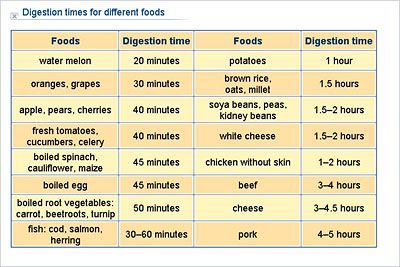Which are the best foods to avoid for Eczema Healing?
In the process of understanding and healing eczema, stress is one factor that lies at the root cause for most people. It’s broadly understood how stress has a physiological response on the body, and makes us more susceptible to disease.
Now, with stress, we tend to think about the environmental factors such as financial commitments, caring for our families, pressures at work, living in busy environments and that sort of thing. However, in this post I’d like to touch on the single factor that exerts more stress onto your body than anything else: digestion.
The digestion of food accounts for 30% of our total daily stress factor, and because it’s something so essential to our existence, we probably never even considered it as a valid form of stress, or evaluated how much of an impact it can have. The truth is, stress exerted onto your body from having to digest and absorb complicated foods is enough to use up a lot of the energy the food would have provided you in the first place.
Think about how you feel after a heavy lunch – you feel sleepy! Your body is working so hard to process all of that food, that you are struggling to stay awake. Your body literally cannot cope with having to digest that complicated food, and keep you conscious at the same time! If you’re hoping to have leftover energy to give to healing your body from disease, it is essential to think about minimising digestive stress.
We have to eat to survive, so how do we go about minimising this digestive stress? Well some people go down the route of water fasting, which is where you only drink water for a period of time, which provides a complete break from digestive stress. Juice fasting is another approach, whereby you only drink fresh fruit and vegetable juices for a time, to still provide some energy and nutrition, but eliminate the need for any real digestion in the body. However, these are not things you can do for months on end, so the really powerful approach is having a sustainable, long term diet that is very easy for your body to digest and absorb.
Here is a chart showing the approximate transit times for various food types;

Source: http://www.yourfibrosupport.com/fibro-relief-blog/how-long-does-it-take-food-to-digest
We can see from this chart that most complex foods are animal products such as chicken, pork and cheese, and as such, these should be the first foods to avoid in our bid to lower digestive stress. We should take note at this point that processed foods do not feature on this chart, but they are much less recognizable to the body as food, often have essential food elements missing, and as such, create unnecessary strain on the body. The most sensible approach to reducing digestive stress overall on the body, is to adopt a whole-foods, plant based way of eating, which will nourish us, and provide us with a good satiation level from our food.
We are going to get deeper into this topic of how our food plays a key role in our bid for clear skin, but for now, if you have any specific questions, be sure to leave them down below, as others may also benefit from my response.